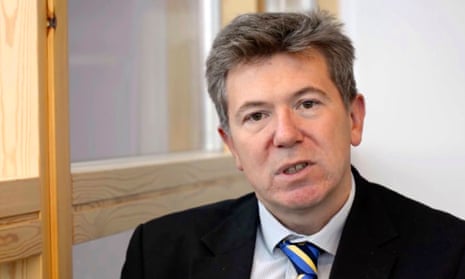Increasing numbers of emotionally troubled children have been taken into care while waiting long periods for NHS treatment because their condition deteriorated to the point where their parents could no longer cope with their behaviour, child protection bosses have revealed.
Association of Directors of Children’s Services (ADCS) president Steve Crocker said that since the pandemic, youngsters with complex emotional needs had become a significant factor in rising child protection referrals.
“We are seeing children in the social care system because they have not been supported in the [NHS] mental health system,” he said.
Crocker urged ministers to “do better” for children facing “unacceptable” delays in NHS mental health treatment, adding that it was not uncommon for waiting lists to involve waits of over a year.
Councils were “filling gaps” in NHS provision but struggling to find placements for children with severe behavioural problems, and when they did, typically paid “untenable” fees of tens of thousands of pounds a week.
He accused private children’s residential care providers and their “rapacious” hedge fund backers of “profiteering” from the care crisis, and urged the government to intervene to cap typical profit margins that were currently about 20%. “We do not see how this can be allowed to continue,” he said.
Crocker’s comments came as he launched the latest ADCS Safeguarding Pressures report, which found the cost of living crisis had left children’s social care resources in England at breaking point amid shortages in trained social work staff. He called for major reform, adding: “We simply can’t go on as we are. Our children deserve better.”
The report cited an unnamed council saying it had paid £30,000 a week for a “bespoke package” to keep safe a child who was self-harming and for whom no inpatient NHS secure services were available. Another council in the London area said it typically paid £20,000 a week for private care facilities.
Crocker said children’s mental health had worsened during the pandemic as youngsters missed out on basic social interactions and key emotional development phases, not least when schools were closed for long periods, and normal relationships with their peers were interrupted.
Although referrals to children’s social care had fallen during Covid-19, they had subsequently risen sharply. Social workers were seeing higher levels of need and risk because of pandemic-related delays in families coming to them for help, by which time problems had often become more complex and severe.
“Typically we are seeing children with levels of distress and anxiety that manifest in self-harm or harming others. They are referred to children and adolescent mental health services [CAMHS] but it is not uncommon for waiting lists to be over a year,” he told the Guardian.
During the wait for treatment, the child’s behaviour would often become more acute, with their family situation becoming more fraught as a result, Crocker said. “Parents say they can’t cope any more, and we have a really traumatised child with more and more extreme behaviour.”
Lengthy NHS waits for CAMHS services had resulted in families reaching crisis point, with council children’s services picking up responsibility for them with no additional resources, the report said.
Children’s social care had become “the last resort” for youngsters whose mental health needs should have been met by earlier by the NHS.
Crocker said this was not about “having a go” at his NHS colleagues, who he said were working incredibly hard in tough circumstances. The bottom line was the health service, schools and councils did not have enough resources to cope with the demand for help. “We do not have enough support for these children,” he said.
It was likely the dramatic increase in the prevalence of children’s mental health problems over the past two years would continue into adulthood, he said. “There is a whole generation for whom the pandemic will be a defining event. We have to understand the [emotional and developmental] impacts could be permanent.”
Crocker said the cost of living crisis and rising poverty would translate into increased referrals to children’s social care: “We are increasingly worried about the cost of living crisis and how many more children will fall into poverty, reducing their quality of life and their life chances. The system is crying out for change.”
The government is preparing a response to an independent review of children’s social care by Josh MacAlister which earlier this year recommended a multibillion pound investment in a system it said was spiralling out of control.
Councillor Louise Gittins, chair of the Local Government Association’s Children and Young People Board, said: “It is absolutely critical the government ensures that children’s services are adequately funded so councils can meet this rising demand and ensure children and their families get the support they need, as soon as they need it.”
A government spokesperson said: “We will be publishing our bold reform plans for children’s social care early in the new year. In the interim we have taken total funding to £695m over three years to support 300,000 families.
“We are also investing in mental health services, with at least £2.3bn a year.”
